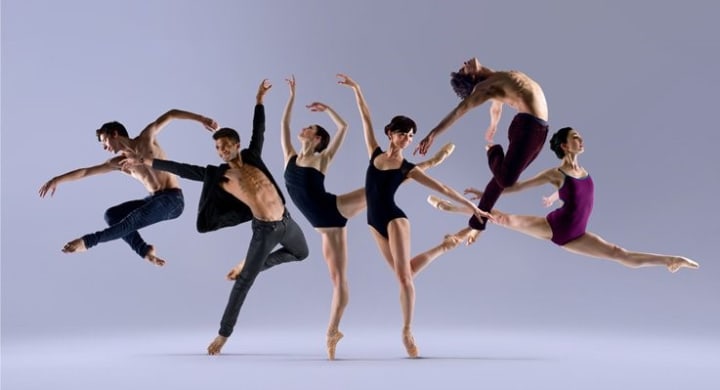Deliberate Practice.
There are a few people in every field who excel where others only manage to achieve competence. Why is that? How do they do it?

There are a few people in every field, be it sports, medicine, ballet, chess, business, etc. who excel where others only manage to achieve competence. Their light seems to shine brighter and they achieve a level of mastery that most of us only dream about. Why is that? How do they do it? Are they born with a special gift?
According to Anders Ericsson, Professor at Florida State University, the worlds leading scientist studying export performance, looking at how some people become the best in their field. In his book, “Peak” studied and analyzed the psychology, physiology, and neuroanatomy of extra-ordinary people and says that it’s not the gift people assume it to be, it’s something even more powerful.
We are all born with this capability which, if we know-how, we can all take advantage of. With the right type of practice, carried out over a significant period of time, will lead to improvement.
Some years ago, Malcolm Gladwell said that any skill can be learned, even mastered, if you put in 10,000 hours. Anders disagrees;
“Good enough, is generally good enough. But, it’s important to remember that the option exists, if you wish to become significantly better at something, that you can”
Anders Ericsson.
We all have this possibility. Through dedicated training that drives changes in the brain and the body, it is possible to do things that you might otherwise not be able. Sometimes genetic endowment will indeed make a difference, particularly where height or other physical. But the “gift” that makes a difference, the one we all have, is the adaptability of the brain and body, which some people have taken more advantage than the rest of us.

English National Ballet
First, you must believe, truly believe, you can improve and change. You can take charge of your potential. You must have confidence in your ability and the right tools. To take advantage of that you have to practice in the right way. This is true for all learning.
Naïve, Purposeful and Deliberate practice.
NAÏVE PRACTICE.
Naïve practice means simply doing the same thing over and over and expecting to get better at what you do. An example would be driving. You may think that simply having more experience makes you a better driver, but it patently doesn’t. Similarly, one might think that the longer you have been a designer the better the designer you are. Whilst some elements of experience may contribute to your competence is doesn’t necessarily follow that you are a better designer.
Simply doing the same thing again and again, in the same way, does not lead to adaptability and improvement. You need to be purposeful and deliberate in your practice with clear goals.
PURPOSEFUL PRACTICE.
Purposeful practice has 4 main elements that differentiate it from Naïve practice.
Well-defined, specific goals with small steps leading to larger steps that follow a path to a specific goal.
Focus. It’s not just about fun according to Eriksson, you need to be intensely focussed and directional in your practice. Dan Pink says that one of the laws of mastery is pain. Single-minded and focused on the goal with critical awareness.
Feedback. You need to know how you’re doing step by step. Knowing what you’re doing wrong identifies what you need to do to improve.
Get out of your comfort zone. You must push beyond your comfort zone in order to make incremental moves forward towards the goal. This is also true for the physical body and muscle building. You need to put the muscles under stress (and indeed tear them) in order for them to rebuild and grow in strength. That may mean crossing a threshold of comfort. Purposeful practice is hard work, both mentally and physically.
DELIBERATE PRACTICE.
Deliberate practice has the same criteria as purposeful practice except that it also includes a mentor, guide or coach. The necessity of an objective external viewpoint changes subjective notions into objective facts. It is very difficult to be able to see, objectively, what precisely it is that you need to improve. It also becomes very easy to slip back into comfort because, without a mentor or coach, our brains and bodies would prefer to reach a level of homeostasis. More about that a little later.

Tiger Woods. Mental representations
Mental Representations.
What deliberate and continuous practice enables those who excel to do is to form better and more mental representation and strategies. What changes in the brain is the neural circuitry which produces highly specialized mental representations.
By constantly and continuously practicing, in the right way, we build mental patterns related to our mastered tasks. Chess masters can hold in their minds, even when blindfolded, several chess games at the same time. Likewise, London black cab drivers can hold the whole on London maps in their minds as mental representations. They do this by gradually applying patterns of the stored information so that they can respond quickly and effectively. They do not possess a better general day-to-day memory, normally their memory function is about average, but what they do have is very strong mental representations.
By leaving their comfort zones they trigger adaptation in the brain and build over time, a huge library of tiny patterns. If chess pieces were randomly placed on a chessboard, a grandmaster would be no better than you or I at memorizing the placements. They don’t have better memories; they have better mental representations.
As performance improves our mental representations improve, which then improves our performance.
Elite climbers will often be able to visualize every move and every foot placement of a climb of a rock face. If you watch Alex Honnold in “Free Solo” you will see that he can rehearse in his mind every single move he has to make on El Capitan.

Alex Honnold. El Capitan
It takes an enormous amount of time and deliberate practice to develop these extraordinary abilities and mental representations.
Homeostasis and Adaptability.
Deliberate practice is a method of harnessing the adaptability of the brain and body to develop abilities that would otherwise be out of reach.
What neuroscience has shown is that brain structure and function are not fixed, they change in response to use and by conscious deliberate training. Yet the brain also has an unquenchable desire and necessity to maintain a stable and consistent environment. Every cell in our bodies is working to and assisting in getting the body and brain stable within very narrow margins.
Our brains seek the paths of least resistance, well-trodden paths, that become mental habits, mindsets and the way we view the world. Likewise, our bodies fight, day and night to bring us back to homeostasis.
When we push beyond our comfort zone our bodies and minds, respond by overcompensating in pursuit of creating a new higher-level of homeostasis. When the body is stressed beyond homeostasis, the body responds with changes that are intended to re-establish homeostasis. As when with running, lifting weights, meditating, when we push beyond the comfort zone, we force our body and brain to adapt. For the brain, this is called neuroplasticity, the ability of the brain to adapt and change to a new level of homeostasis. So, the only way to “grow” is to push out of our comfort zone and teach the body and mind to adapt to the new level.
With deliberate practice the goal is not just to reach potential but to build it, to make things possible that weren’t possible before. We force our bodies and brains to adapt.
In conclusion, Anders Eriksson says that there is no reason not to follow your dream. Deliberate practice can open the door to a world of possibilities that you may have been convinced were out of reach.

Gary Kasparov.






Comments
There are no comments for this story
Be the first to respond and start the conversation.